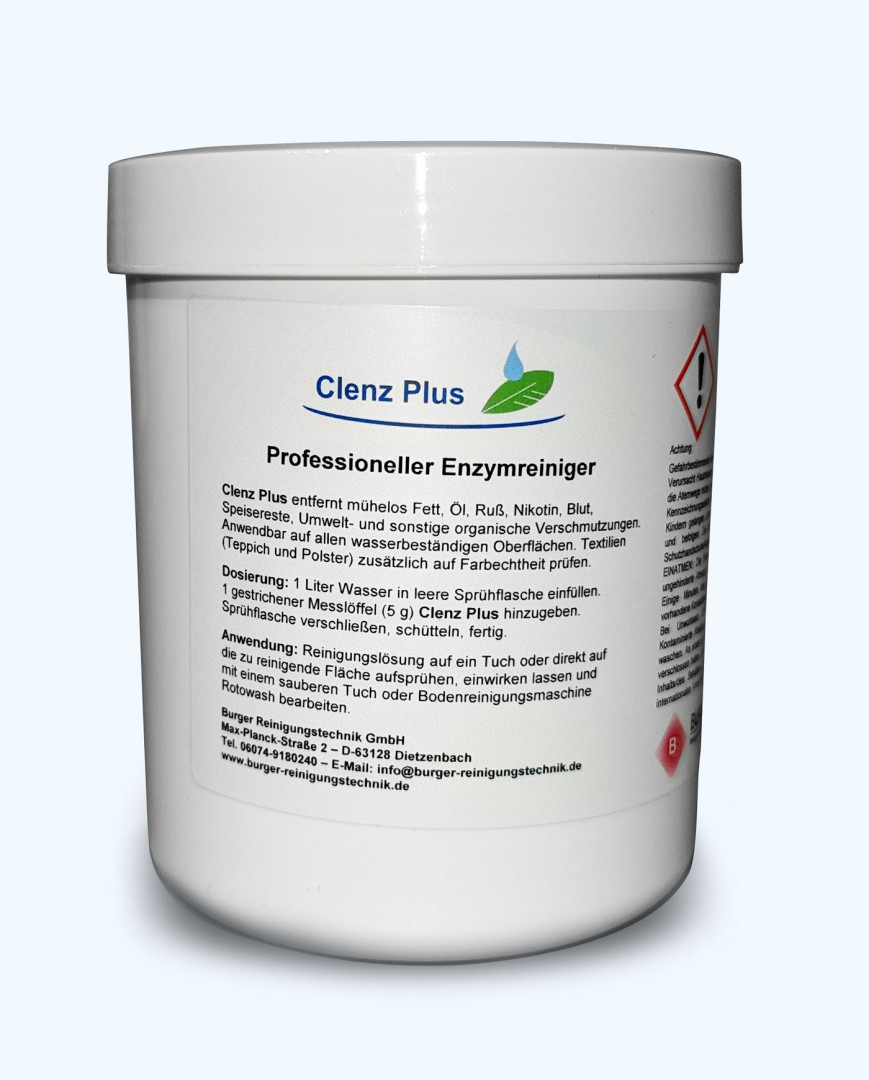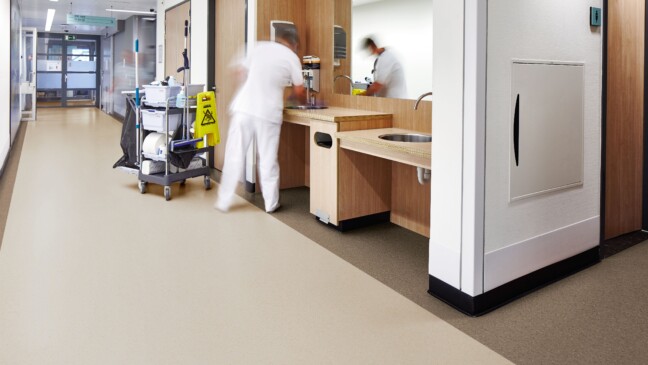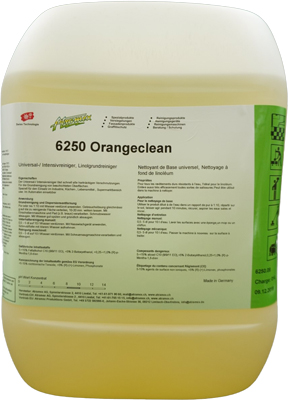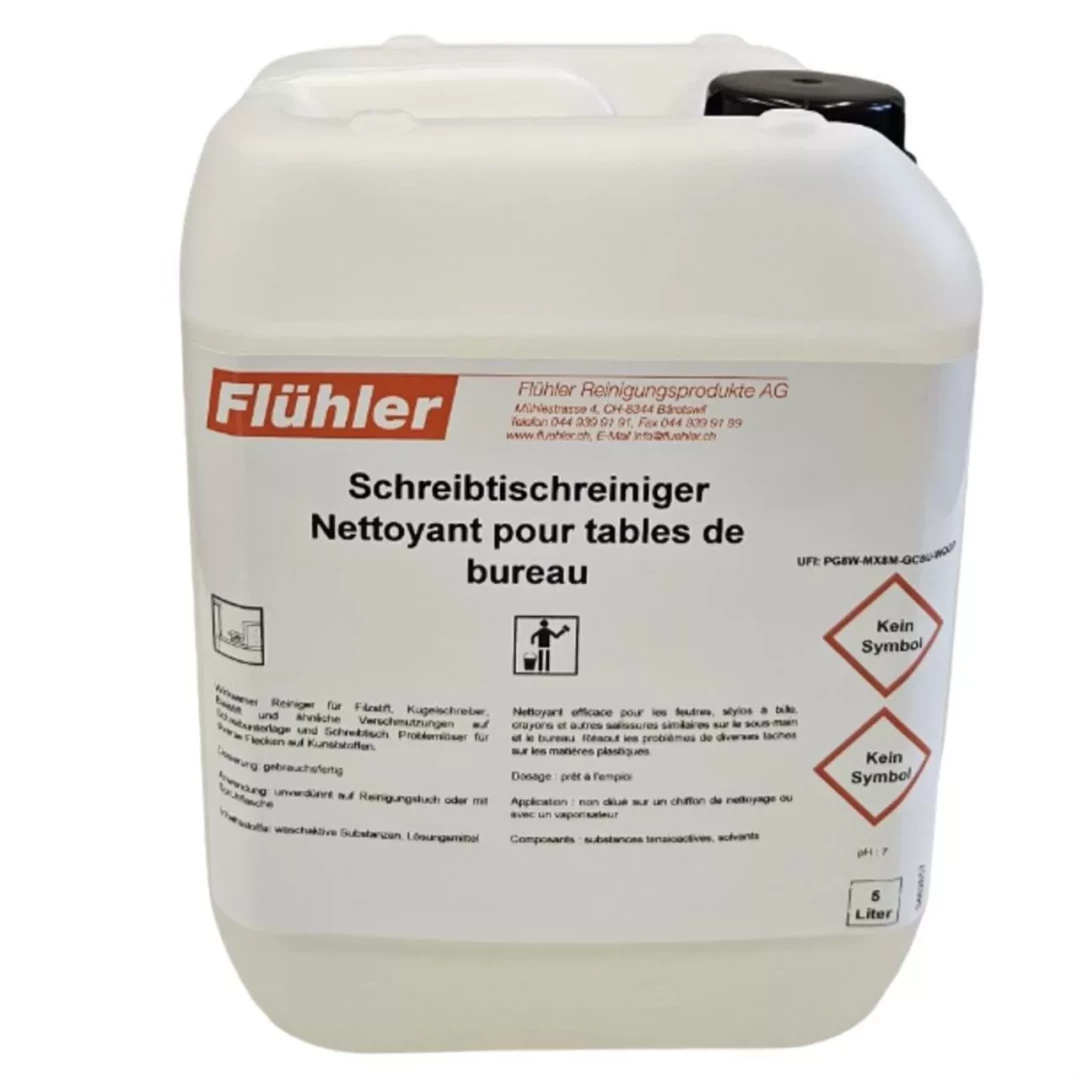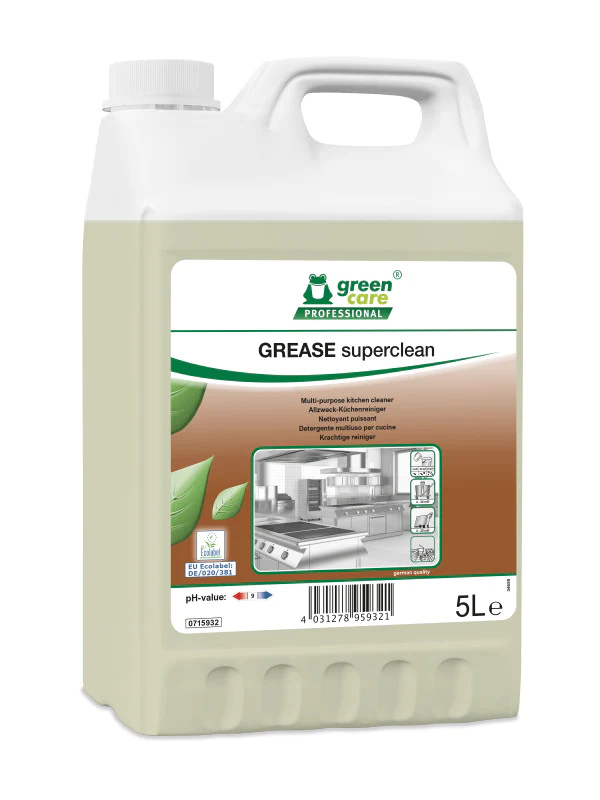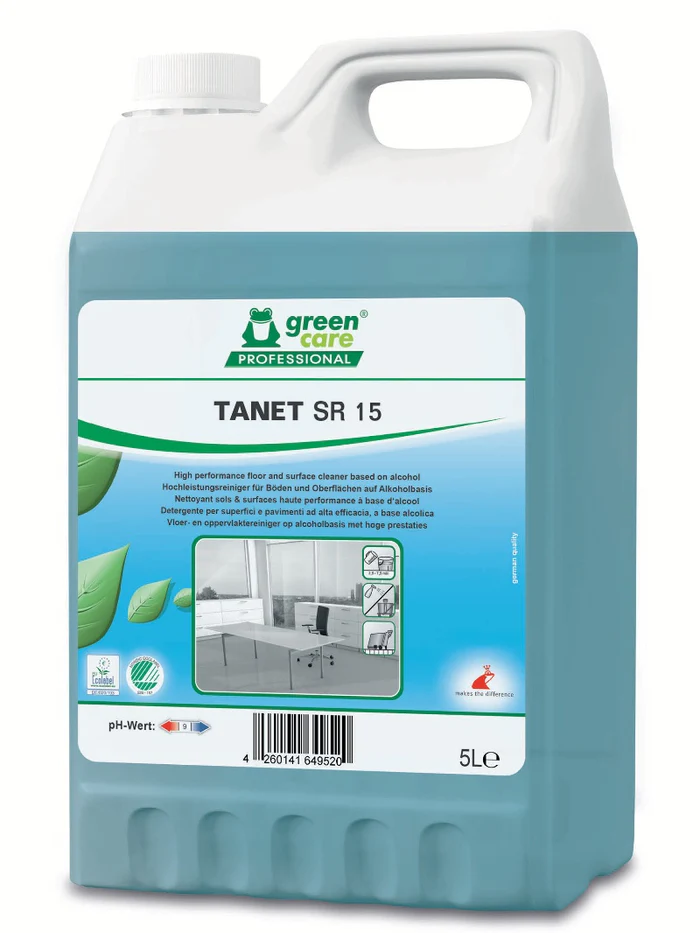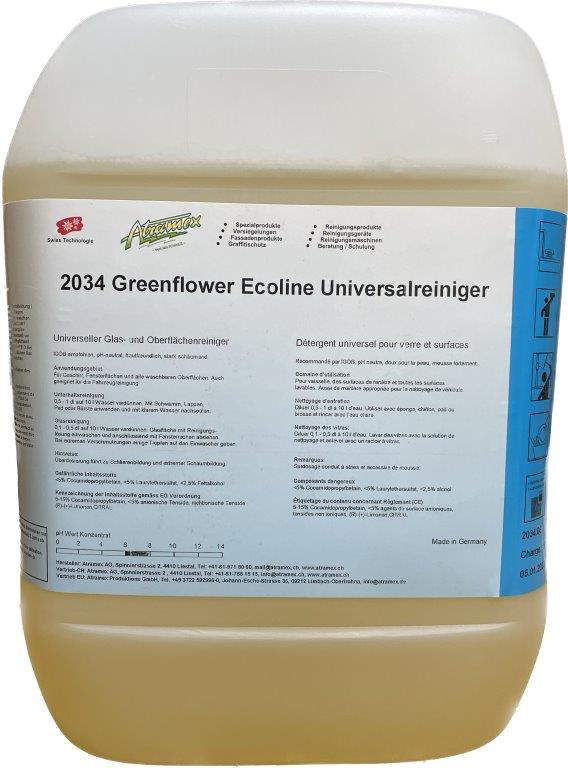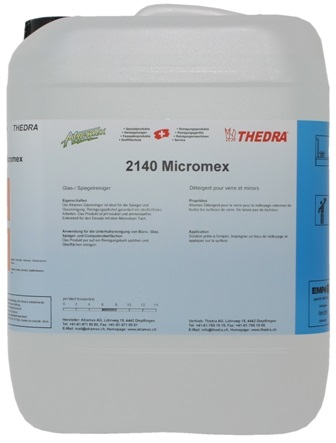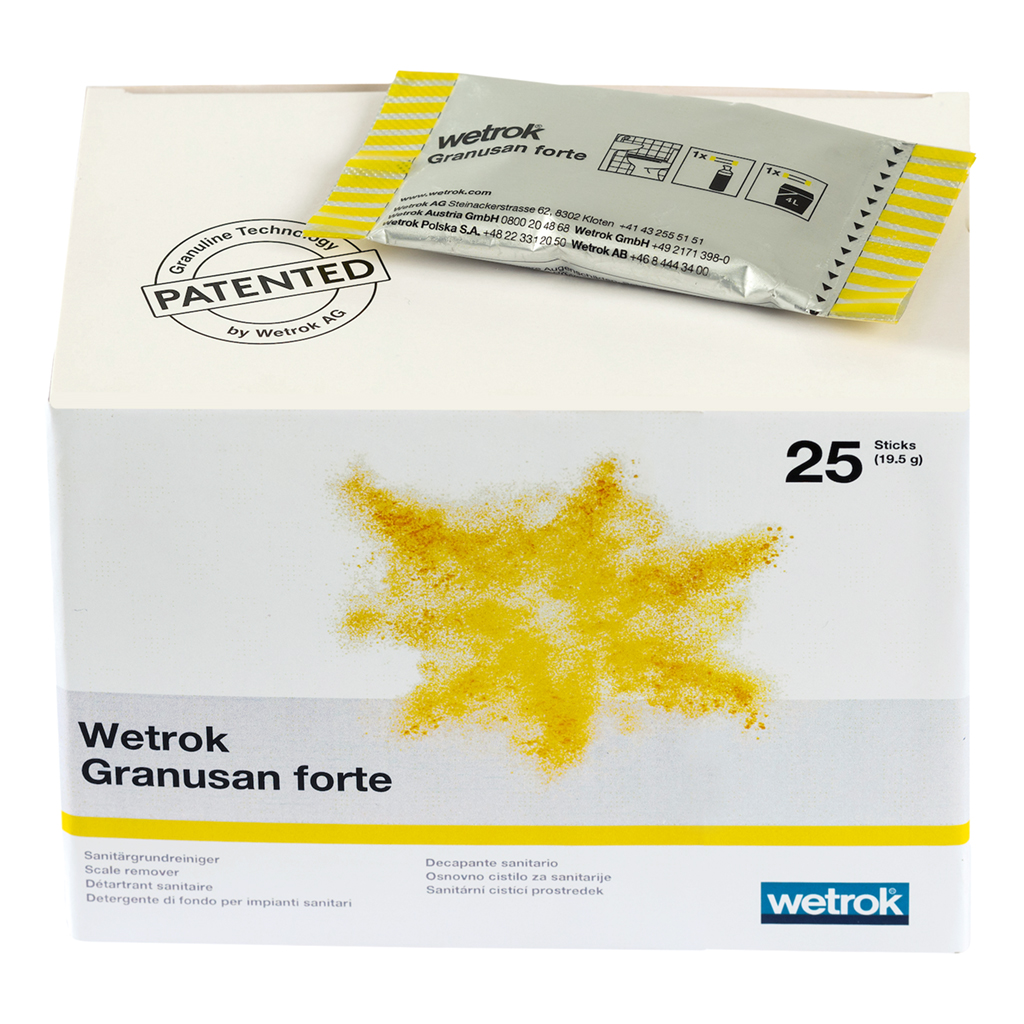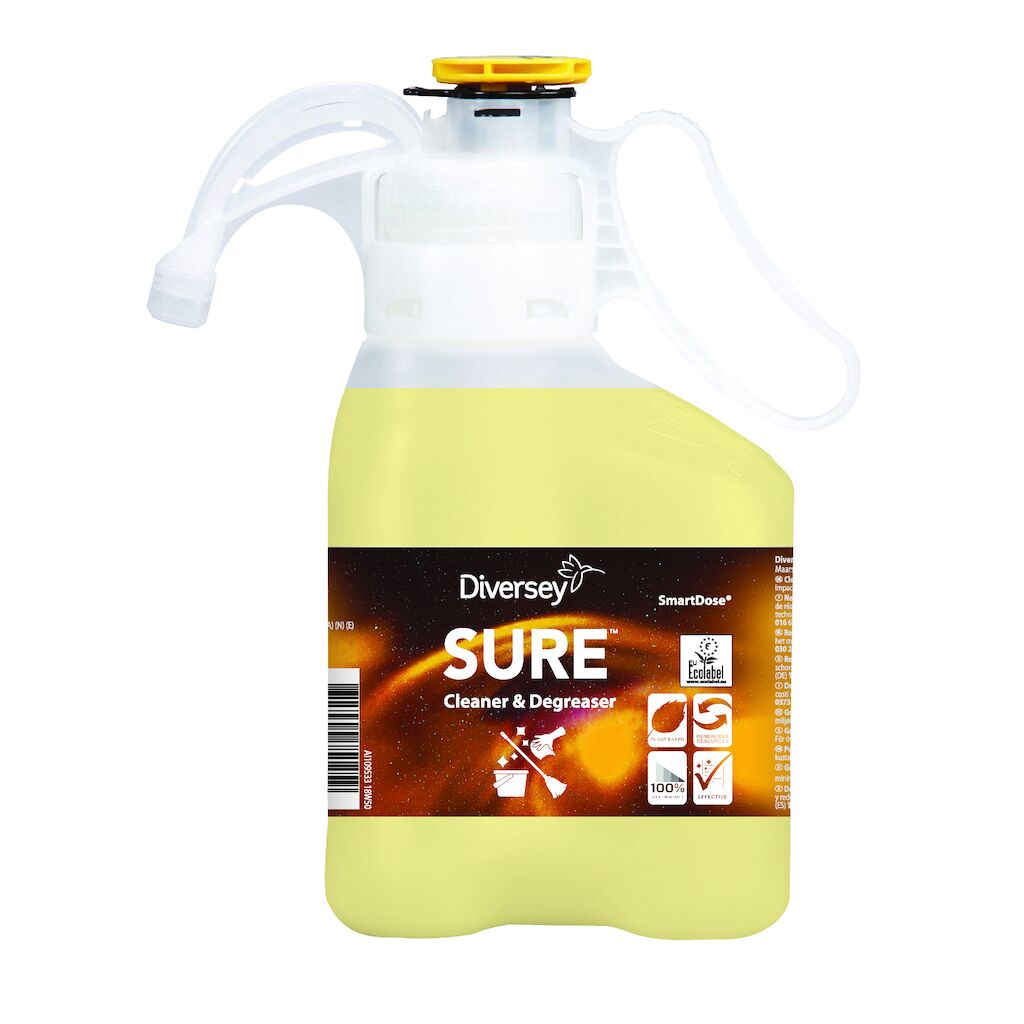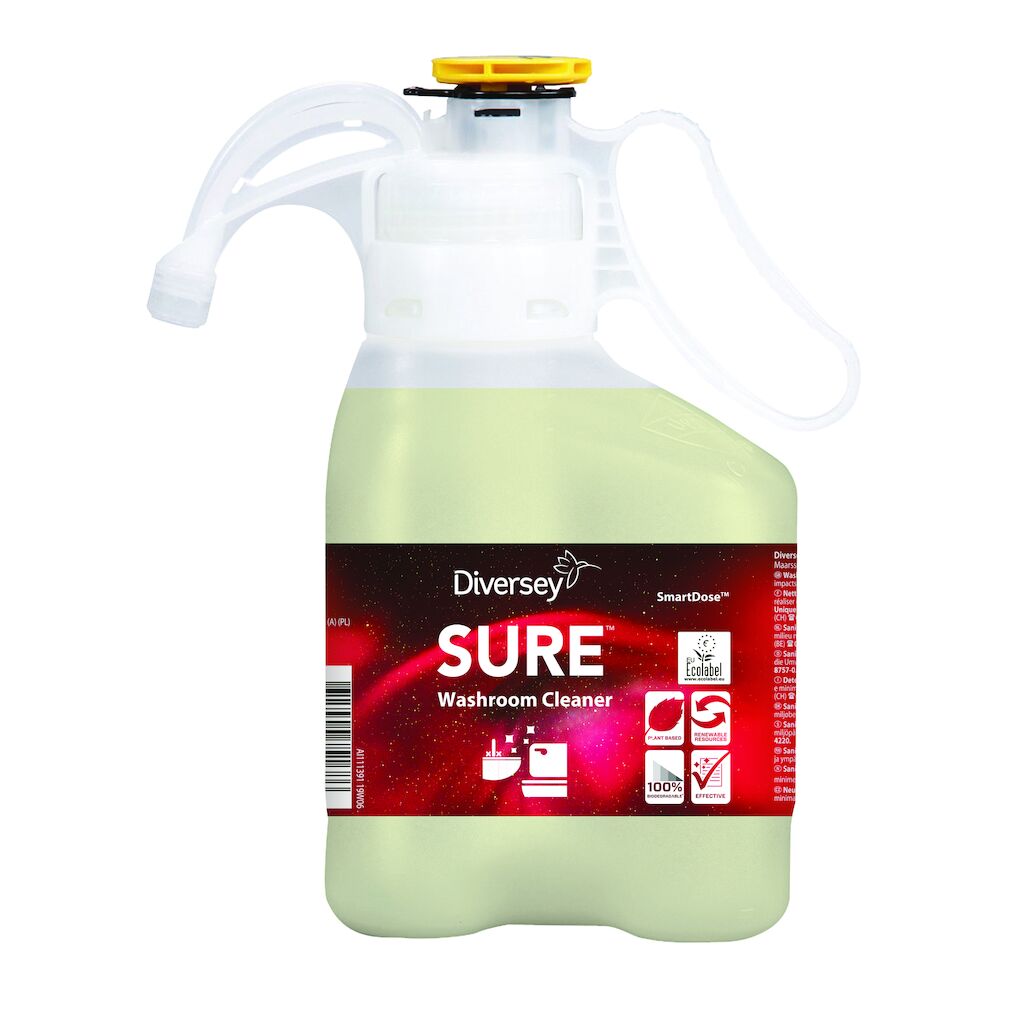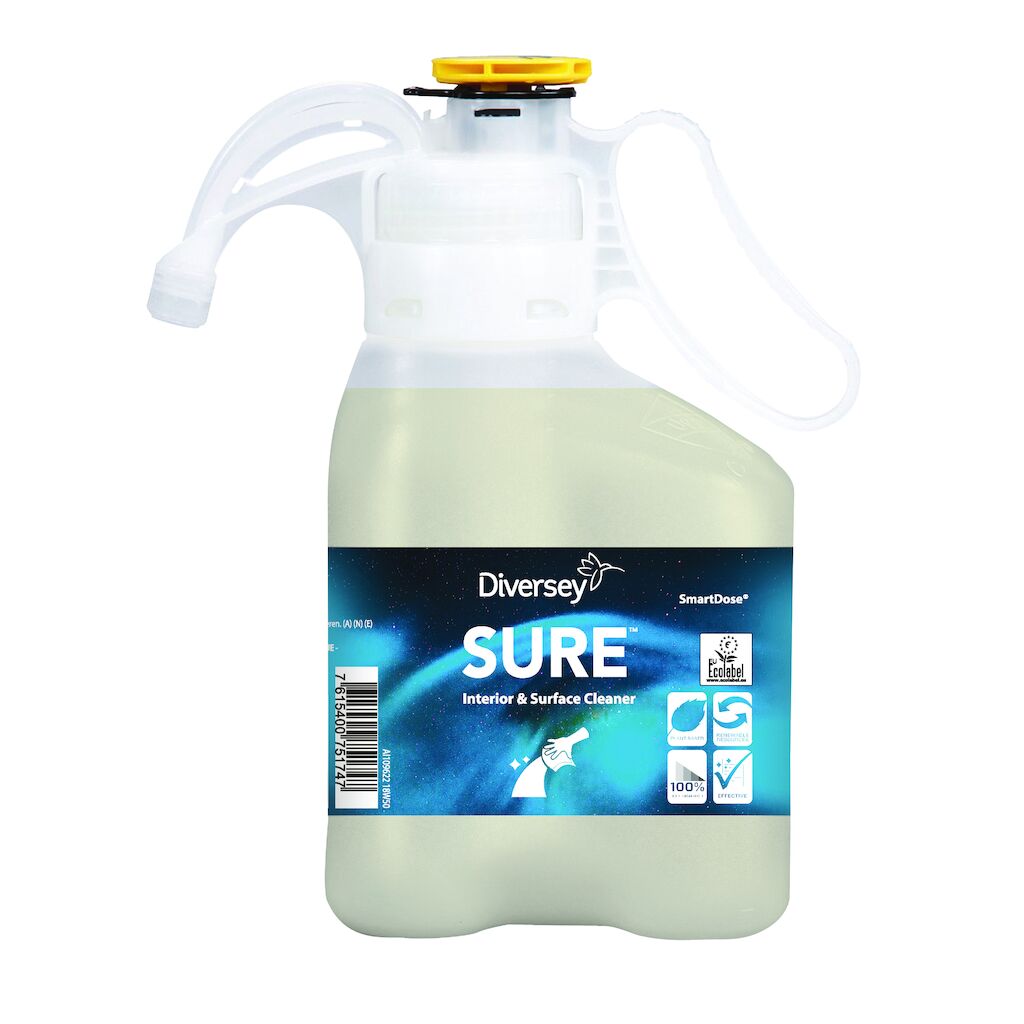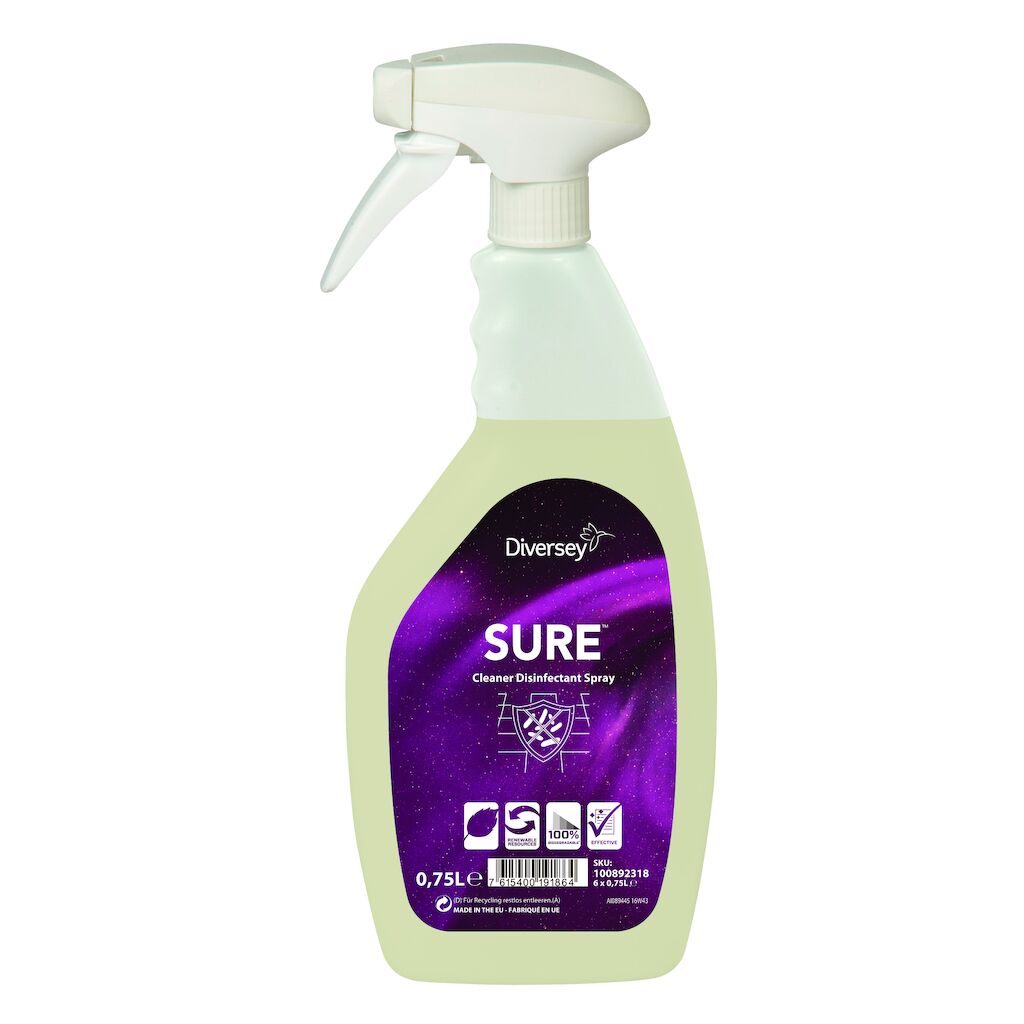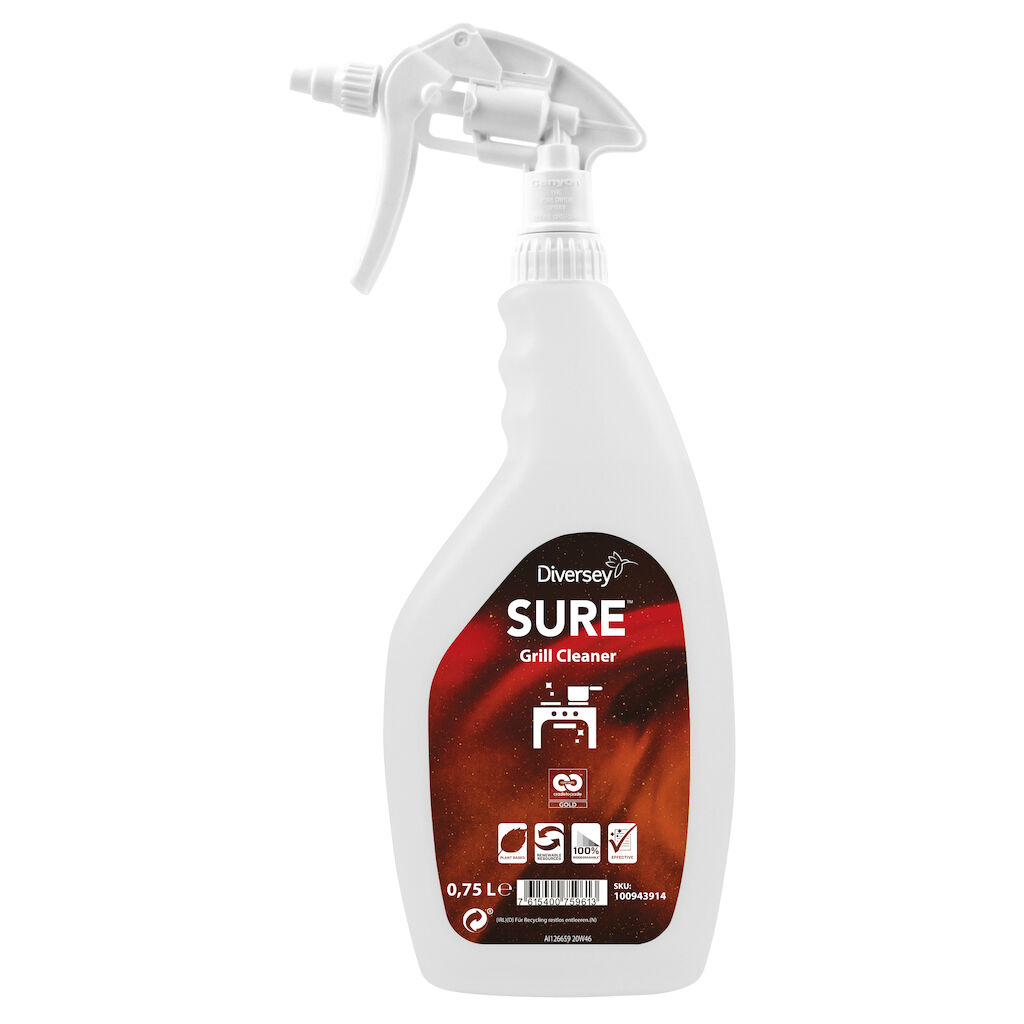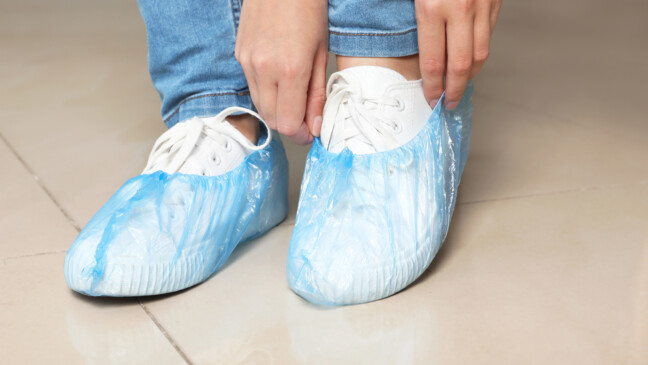
20.03.23
Klenz Superenzyme by Burger – a product innovation
Enzymes are becoming increasingly prevalent in laundry and cleaning products. They replace other, often hazardous ingredients in these products. The article examines the significance of enzymes in the cleaning industry, providing insight into their mechanisms of action and various application areas.
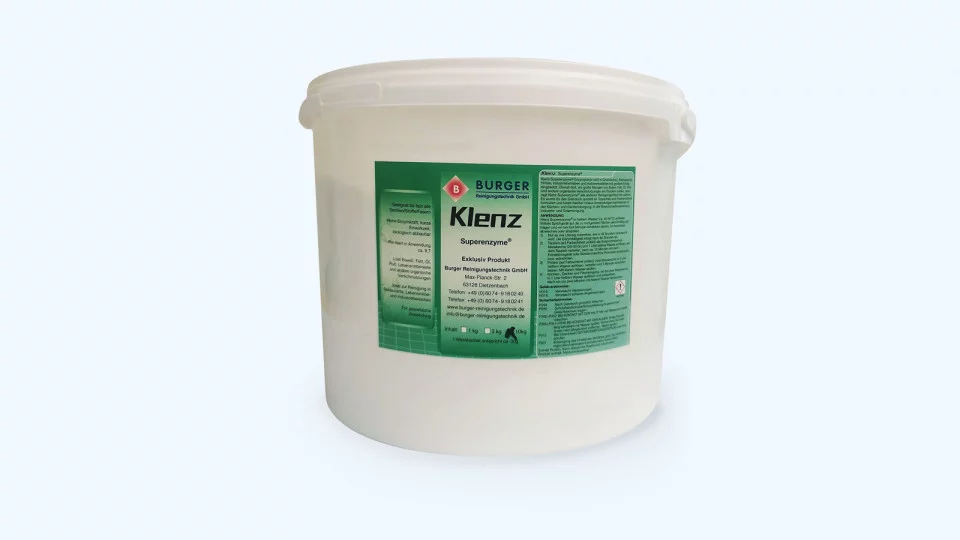
Background
Organic pollutants are as common in maintenance cleaning as they are in construction and specialty cleaning. Particularly, greasy and oily contaminants adhere strongly and often require the use of strong cleaning chemicals for removal. However, not all surfaces tolerate the use of these products. For example, aluminum can be corroded (oxidized) by alkaline cleaning agents.
What are enzymes?
Enzymes are complex molecules, mostly composed of proteins. They catalyze, or accelerate and enhance, reactions. This phenomenon also occurs in the human body. This effect arises because enzymes lower the activation energy required to initiate a reaction. As a result, reactions occur earlier and with less effort.
Enzymes in cleaning agents
What does this mean for enzymes in cleaning or enzyme-based cleaning chemistry?
When preparing a conventional cleaning solution for cleaning range hoods, a highly concentrated alkaline grease remover is typically used. The cleaning solution is thus very active (aggressive), which triggers the cleaning effect. However, this raises several issues concerning occupational safety, ecology, and material compatibility. The high pH value makes the cleaning solution hazardous for the user’s skin and eyes. The disposal of the cleaning solution introduces many potentially problematic substances into the water cycle, burdening and complicating water treatment. This, in turn, has a negative impact on the ecological footprint of these cleaning activities. Additionally, the cleaning solution can inadvertently run or drip onto non-resistant surfaces, causing corrosion damage.
The complex of the enzyme bound to its corresponding substrate is referred to as the “enzyme-substrate complex.” This represents a useful enzyme-based cleaning agent.
What do enzymes contribute to the solution?
Enzymes have been used in premium laundry detergents and high-quality dishwashing detergents for many years. As they partially or fully replace other cleaning agents, they make products less harmful to the environment and the user. By catalyzing chemical reactions, they noticeably enhance the capabilities of these products.
In the aforementioned example, when the correct enzyme-containing product is used, there is no need for other cleaning agents.
The advantages are clear:
- Short contact time
- Minimal mechanical action (manual labor)
- Little risk to surfaces, users, and the environment
Burger – Klenz Superenzyme
Burger Reinigungstechnik GmbH from Dietzenbach, Germany, has developed its own enzyme-based cleaning agent. It comes in powder form and is mixed with hot water. The resulting cleaning solution remains effective for 48 hours. Even if the product cools down during this time, its full efficacy is retained.
Like all enzyme-based cleaning agents, the product doesn’t solely consist of enzymes, as enzymes only serve as catalysts. Other active substances are added to the product to be used as a cleaning agent.
The cleaning solution is particularly effective wherever there are large amounts of grease, oil, or other organic contaminants. It also works well for cleaning after a fire. It removes soot as effectively as it does greasy residues in a commercial kitchen.
Due to its broad spectrum of action and excellent material compatibility, the product is also used for cleaning solar panels. The PV systems are sprayed with the cleaning solution and then rinsed with clean water after the specified contact time.
The cleaning agent is very safe to use. No special safety precautions are required (wearing protective eyewear is recommended whenever using a cleaning agent, including this chemical product).
Application areas
- Kitchen
- Industry
- Fire damage restoration
- Facade cleaning
- Solar panel cleaning
Types of contaminants
- Grease
- Oil
- Soot
- Weathering deposits
- Algae and moss
- Other organic contaminants
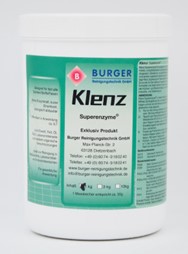
Summary
We recommend Klenz Superenzyme for the following reasons:
- Easy to use
- Safe for humans and the environment
- Reduces training efforts
- Replaces classical aggressive products
- Highly cost-effective
- Wide range of applications
- An excellent problem solver
- Saves the user’s effort (ergonomics)
New addidtion
Finally, we introduce an absolute novelty: “Clenz Plus.” This product is the successor to the successful Klenz Superenzyme. In addition to all the existing advantages, the new product can be mixed with cold water. This means the powder can be directly filled into a spray bottle without heating the water. Furthermore, the resulting cleaning solution can be used for twice as long as before. The product is now available in specialty stores.
